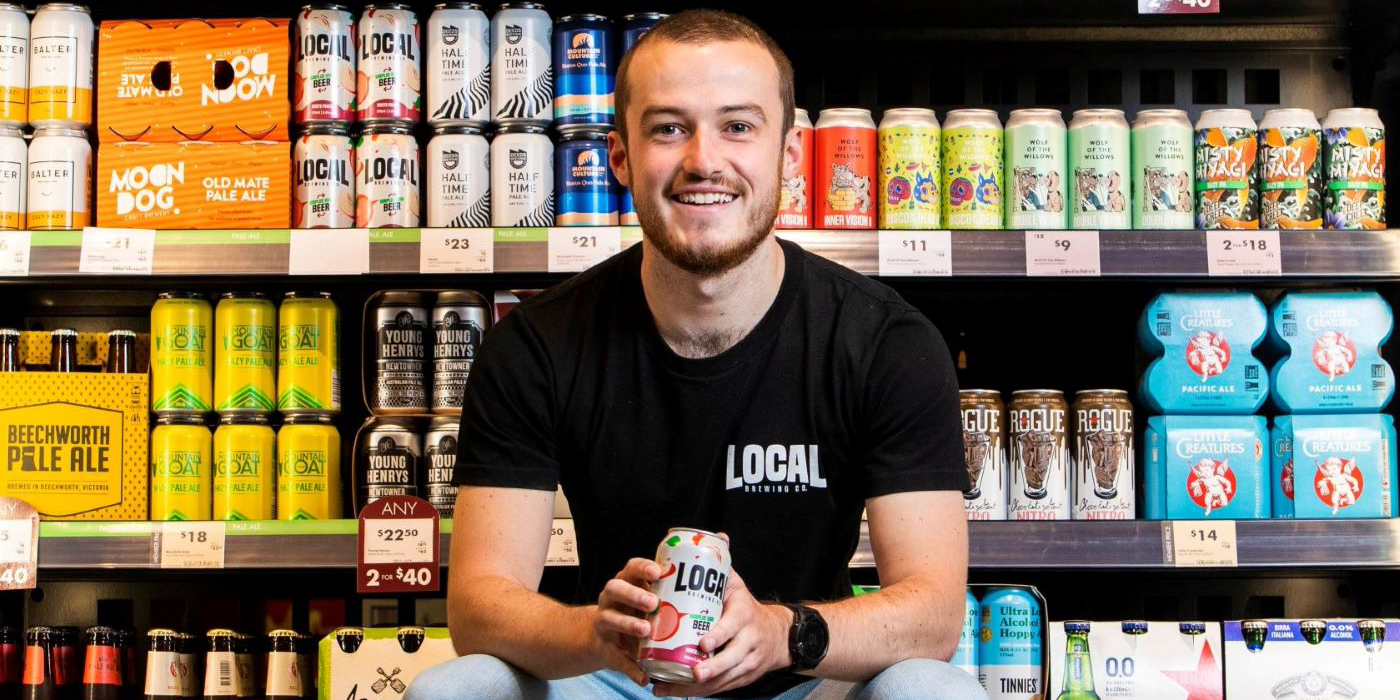
Coles Liquor launches sustainable sour
Content published as an Announcement is produced by the business(es) named in the announcement and remains unedited by Brews News.

Coles Liquor’s latest craft beer is forging new pathways to market for fresh produce growers and tapping into customer demand for authentically, sustainable local beers.
The White Peach Surplus Sour is the latest exclusive craft beer release to hit the shelves at Liquorland and First Choice Liquor Market stores this year and brewed using unsold supermarket bread and excess white peaches.
This rapidly growing selection of unique, limited-run craft beers blends the brewing expertise of leading craft businesses such as Local Brewing Co and Mountain Culture with Coles Liquor’s national store network to deliver special, seasonal releases in some of the most popular and sought-after beer styles.
Coles Liquor General Manager of Merchandise Brad Gorman said craft beer was one of the most innovative and exciting beverage segments with an engaged customer base that was always on the lookout for new and creative releases.
“We work closely with the craft brewers and focus on emerging beer styles that we know have momentum behind them like sour beers or hazy pale ales, as was the case with our very popular Blood Orange Hazy Pale Ale – a collaboration between our craft brand Tinnies and Melbourne craft brewer, Moon Dog.”
Mr Gorman said the craft beer team worked hard to develop a unique element for each exclusive beer, something that really made it stand out from the crowd such as the sustainability credentials of the White Peach Surplus Sour.
“The secret ingredient for the Surplus Sour range is that it’s closing the loop on fresh produce by finding a new use for unsold fruit and excess Coles bread as well as forging a new route to market for fruit growers such as Cutri Fruit, which provided the white peach juice to Local Brewing Co.”
The White Peach Sour is the second release under the Surplus Sour brand and follows the hugely successful Watermelon Sour, which Local Brewing Co created with unsold melons from long-time Coles produce supplier Rombola Family Farms and bread from Coles supermarkets.
Sours are an ancient beer style, with a history that dates back to Europe in the early 18th century but the tart taste of the beer, which comes from the production of lactic acid in the fermentation process has proven to be perfect for balancing with refreshing fruit flavours.
The resulting sour brew, with its balance of sweet and ‘sour’ flavours has been one of this summer’s hit drinks appealing to beer drinkers as an alternative to traditional ‘bitter’ ales and to customers looking for a lighter, mid-strength summer beverage.
For the white peach fruit grower Gaethan Cutri this collaboration signifies a generational shift among growers, who are looking for new pathways to market for imperfect or unsold fruit.
“Sustainability isn’t just about your environmental footprint, it’s also about the outlook for our agricultural business.” Mr Cutri said.
“Partnerships like this forge new revenue paths for our operation and keep a sense of excitement alive as we see our imperfect or unsold fruit transition into something new and enjoyable.”
The COVID-19 pandemic sharpened customer focus on the impact of their purchasing and accelerated the rise of conscious consumerism, according to Local Brewing Co founder Sam Harris.
“Customers want to know how our business is impacting the environment and the community and importantly they want to feel like their purchases are having a positive impact,” Mr Harris said.
Local Brewing Co was founded on the concept of doing good, with a portion of its revenue going directly to food rescue organisation and Coles partner SecondBite.
“The Watermelon Surplus Sour allowed us to scale-up our giving and we’re thrilled to launch the second sour in collaboration with Coles Liquor under the Surplus Sour brand.
“It feels like we’re playing a meaningful role in closing the loop on food waste by making an exceptional sour and that feels like a great outcome for our customers and the environment.”



